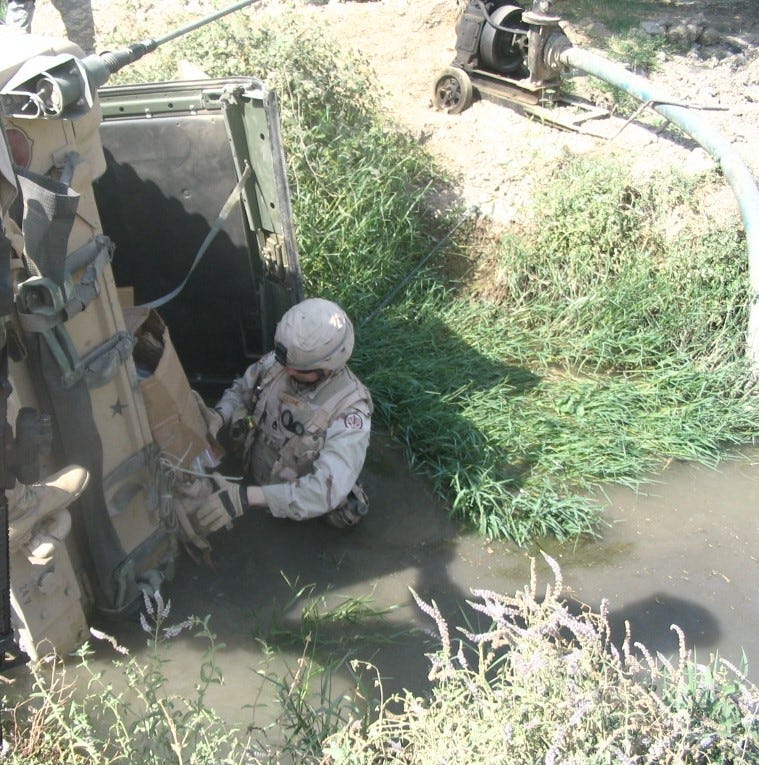A Little Perspective
Everyone has their own unique way of looking at the world. We all have our individual values, beliefs, and opinions that shape our perspective on life. Recognizing the perspective of others means taking a step back and understanding that there are different ways of looking at a situation. It involves being open to considering other people’s points of view, allowing for a more inclusive and understanding atmosphere. Recognizing another’s perspective can be difficult in the face of disagreement, but it is an important part of communication and collaboration. Being able to understand and accept that someone may see things differently is the first step towards creating a positive and productive dialogue. By recognizing the perspective of others, we can develop deeper connections, foster productive conversations, and create a more inclusive environment.
A little perspective truly goes a long way. The military allowed me to experience multiple cultures around the world, to gain knowledge most Americans would never know. My first trip outside of the U.S. was to Bosnia and Herzegovina (via Hungary and Croatia); the first time I saw war-torn villages with the locals trying to make a living and rebuild their lives amongst the rubble opened my eyes.
I grew up in a housing project in North Carolina, Fairview Homes, and moved into my grandmother’s house the summer before my freshman year of high school. The water heater broke sometime during that summer, and we could not afford to replace, it was just going to be a little inconvenience for a few months. Those few months turned into four years. There were no showers; we would heat a large pot of water on the stove and pour it into the bathtub. I would wash my hair in the morning under the cold water, it was a great way to wake-up. We still had a roof over our heads, we never went hungry. I worked at a Chinese restaurant during my first two years of high school and McDonald’s during my last two, so I always had a little money in my pocket.
Even though we were doing ok, I always thought it could not get lower than this. I had never experienced the lives of others; how cruel the world could be to so many others. My viewpoints began to change during my first deployment, my awareness heightened the next year when I spent seven months in Honduras. During this time, we would provide medical services throughout the rural communities and mountainous villages. Usually, these events lasted for two or three days with a staff of physicians, veterinarians, and dentists. The lines for the veterinarians were always longer, even though these villagers truly needed medical attention. They wanted to ensure their livestock, their only way of making a meager living, received medical attention before they took care of themselves. These villagers lived in huts with no doors or windows, drink from a filthy river, and had a short life expectancy due to ill health. Graciously, this taught me to be humble and thankful for everything that I have, to never take anything for granted. My time in Iraq and Afghanistan only strengthened those values.
The next time you’re waiting in a long line for an expensive latte or you complain to a server working themselves to the bone because they forgot your rolls, see yourself through their eyes. Does it really matter? Focus on what is truly important. Yesterday, someone in your town had vacation plans or was planning to attend a family member’s ceremony…today, they did not wake up. Be grateful for every single day you wake up because, as much as we do not want to admit it, one day will be your last.
When we look at the world, we see people with different values and different ways of looking at things. This idea there are many ways of being and seeing can be hard to accept since we might like one way of doing things better than another. But the more we try to understand the perspective of others, the better we will be able to work together and recognize that we all want the same things.
When we recognize the perspective of others, we open the door for deeper connections and better understanding. The more we practice this understanding, the better we will get at identifying each other’s feelings and honoring each other’s values.
Remember that even if you think you’re right, it’s important to remember that there may be a different way of seeing things. And even if you’re not, it’s important to remember to treat everyone with respect and kindness, including the ones that you disagree with.
(Yes, that is me waist deep in ditchwater in Iraq, 2005)
.


